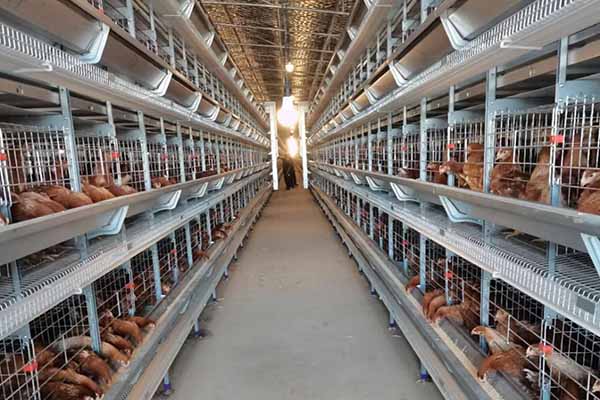How to Start a Chicken Farm in NC: A Comprehensive Guide
Time : 2025-06-24
Starting a chicken farm in North Carolina can be a rewarding endeavor, offering both economic opportunities and the satisfaction of raising your own livestock. Whether you’re looking to enter the poultry industry for commercial purposes or to supply local markets with fresh, organic eggs, this guide will walk you through the essential steps to get your chicken farm up and running.

1. Research and Planning
Before you dive into the world of chicken farming, thorough research and careful planning are crucial.
1.1 Understand the Market
Begin by analyzing the local market in North Carolina. Determine the demand for chicken products, including eggs and meat. Consider the competition and the potential for growth in the region.
1.2 Study Regulations and Permits
North Carolina has specific regulations and permits required for operating a chicken farm. Research these requirements to ensure compliance. Key permits may include a farm license, environmental permits, and food safety certifications.
1.3 Develop a Business Plan
A solid business plan is essential for any startup. Outline your goals, financial projections, marketing strategies, and operational plans. This document will be vital for securing financing and guiding your f arm’s growth.
arm’s growth.
2. Choose the Right Location
The location of your chicken farm can significantly impact its success.
2.1 Access to Feed and Water
Ensure your farm is close to suppliers of quality feed and a reliable water source. These resources are crucial for the health and productivity of your chickens.
2.2 Proximity to Markets
Consider the distance to markets and customers. A closer proximity can reduce transportation costs and ensure fresher products for consumers.
2.4 Zoning and Environmental Considerations
Check local zoning laws to ensure that operating a chicken farm is permitted in your chosen area. Also, consider the environmental impact of your farm and how you will manage waste and emissions.
3. Selecting the Right Chicken Breed
The type of chicken you choose can influence your farm’s success.
3.1 Layers vs. Broilers
Decide whether you want to focus on laying hens for eggs or raising broilers for meat. Layers are typically docile and produce eggs, while broilers grow faster for meat production.
3.2 Hardiness and Adaptability
Select chicken breeds that are hardy and well-suited to the climate in North Carolina. Consider factors like disease resistance, laying performance, and growth rate.
4. Building the Chicken Coop and Equipment
The structure and equipment of your chicken farm are vital for the health and productivity of your chickens.
4.1 Designing the Coop
Construct a coop that provides adequate space, protection from predators, and comfortable living conditions for your chickens. Ensure good ventilation, lighting, and temperature control.
4.2 Selecting Equipment
Invest in quality poultry equipment such as feeders, waterers, nesting boxes, and brooders. Consider automated systems for feeding and watering to enhance efficiency.
4.3 Health Management
Install a system for managing waste and disease control. Regularly clean and disinfect the coop to maintain a healthy environment for your chickens.
5. Managing Your Chicken Farm
Effective management is key to the success of your chicken farm.
5.1 Feeding and Watering
Provide a balanced diet and clean water to your chickens. Monitor their health and adjust their diet as needed.
5.2 Disease Prevention
Implement a disease prevention program, including regular vaccinations, good biosecurity practices, and prompt treatment of any health issues.
5.3 Marketing and Sales
Develop a marketing strategy to reach your target market. Consider selling directly to consumers, working with local restaurants, or distributing to grocery stores.

6. Financial Planning and Growth
Sound financial management is essential for the long-term success of your chicken farm.
6.1 Budgeting and Financial Tracking
Keep a detailed budget and track your farm’s financial performance. This will help you make informed decisions and manage costs effectively.
6.2 Scaling Up
Plan for future growth by investing in additional infrastructure, expanding your flock, or diversifying your products.
Conclusion
Starting a chicken farm in North Carolina requires careful planning, dedication, and a deep understanding of the industry. By following these steps and staying informed about the latest practices and technologies, you can build a successful and sustainable farm.











